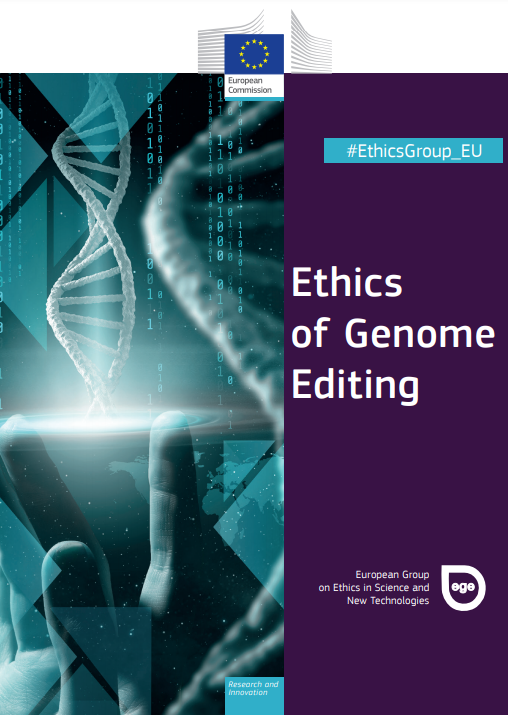On Friday 19 March the European Group on Ethics (EGE) published its long awaited report on Ethics of Genome Editing which is part of the overall Commission Study on New Genomic Techniques (NGTs).
“Euroseeds welcomes that the EGE takes a differentiated approach and discusses the ethical aspects that are related to the application of genome editing in crops separately from those in humans, animals and microorganisms”, comments Garlich von Essen, Secretary General of Euroseeds. “The EGE acknowledges that the outcomes of genome editing applications in plants can be very diverse: they can be comparable to conventional breeding or to what can be achieved naturally. Euroseeds shares the view that for those applications of genome editing, regulation should be proportional to the risk and light in touch.”
Garlich von Essen, Secretary General of Euroseeds.

The EGE also recognises that the introduction of new genome edited plants into the agricultural environment may be beneficial in providing products for an increasing population and for climate change mitigation. With this EGE confirms the statement in the Farm to Fork strategy that “new innovative techniques, including biotechnology…, may play a role in increasing sustainability”.
The EGE recommends that traceability and labelling should only be required where the modification could not occur naturally through mutation, or natural recombination with sexually compatible plants. Importantly, EGE acknowledges that any additional risk assessment requirements would prove costly and impose a high regulatory burden which may disproportionately impact small companies and research centres. “This recommendation is very important to our sector in which small and medium sized companies play a crucial role to guarantee a diverse choice of improved crop and vegetable varieties for farmers and growers”, highlights von Essen.
“The EGE’s recommendation to focus on the public dialogue with regard to genome editing, and its benefits in providing products for an increasing population and for climate change mitigation, are very welcome and our sector is committed to continuing its engagement and facilitating a constructive and open dialogue with all interested stakeholders”, concludes von Essen.